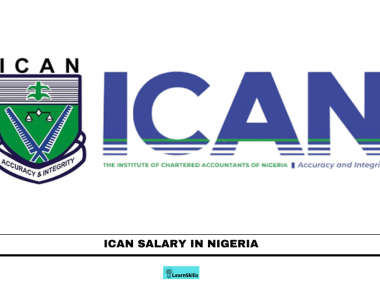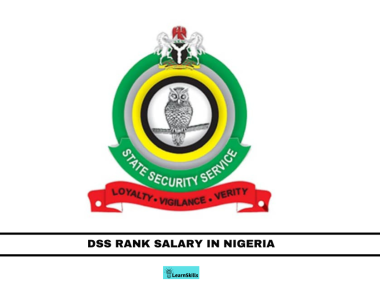If you’re considering a career as a pilot in Nigeria, knowing the financial aspects is crucial. The estimated salary for a pilot in Nigeria is around NGN199,355 per month, though this can vary depending on experience, qualifications, and the airline you work for.
Entry-level pilots typically earn about N250,000 annually, while more experienced pilots can make significantly more, especially with a Commercial Pilot License.
Pilot training programs in Nigeria offer various paths, including obtaining a Private Pilot License or advancing to a Commercial Pilot License. These certifications are essential for securing a job in the airline industry.
As you progress in your career—from a student pilot to a seasoned airline captain—you’ll find that salaries can rise substantially, with senior captains earning impressive incomes based on their expertise and dedication.
Understanding Pilot Salaries in Nigeria
Pilot salaries in Nigeria vary on position, experience, and the airline. Both captains and first officers receive different pay, influenced by where they work and their level of seniority.
Components of a Pilot’s Salary
A pilot’s salary typically includes several key components. The base salary is the primary payment you receive. Additional elements can enhance your total earnings:
- Flight Hours: Pay often depends on the number of hours you fly.
- Benefits: This may include health insurance, retirement plans, and travel allowances.
- Bonuses: Some airlines offer performance bonuses or pay for extra duties.
For example, a pilot at a major airline like AirPeace might have an average monthly salary of ₦525,000. In contrast, entry-level positions can start much lower, making experience and position crucial for earning potential.
Comparing Salaries: Captains vs. First Officers
Captains tend to earn significantly more than first officers due to their experience and responsibilities. Your salary will vary based on your rank within the cockpit.
- Captains: They often earn higher salaries, reflecting their leadership role. Experienced captains may earn around NGN1,500,000 monthly.
- First Officers: While they may earn less, their salaries are still competitive, typically ranging from NGN500,000 to NGN900,000 monthly.
Your career path and the airline’s reputation can also affect earnings. Long-term pilots with seniority can command higher salaries.
Regional Airline vs. Major Airline Pay Scales
Salaries differ between regional and major airlines in Nigeria.
Major Airlines: They usually offer higher pay and more benefits. Pilots working for large companies, like AirPeace, often see better compensation packages.
Regional Airlines: These airlines tend to offer lower salaries but may provide opportunities for newer pilots to gain experience.
For instance, monthly salaries at regional airlines may range from NGN199,355 to NGN400,000, depending on the airline and individual experience. Choosing between these options can influence your long-term earnings potential.
Pilot Training and Licensing
To become a pilot in Nigeria, you must go through several steps in training and licensing. These steps include obtaining a student pilot certificate, pursuing a commercial pilot license, and advancing to an airline transport pilot certificate.
Getting a Student Pilot Certificate
The first step is obtaining a Student Pilot Certificate. You need to be at least 16 years old and able to read, speak, write, and understand English.
You should complete a medical examination to ensure you’re fit to fly. Once you meet these requirements, you can enroll in a pilot training program. This will involve flight training and ground school instruction, where you learn about aviation theory, regulations, and navigation.
Having a Student Pilot Certificate allows you to fly under the supervision of a certified flight instructor (CFI). This is a crucial stage where you build your flying skills and get accustomed to aircraft operations.
Obtaining a Commercial Pilot License
Next, you will aim for a Commercial Pilot License (CPL). To qualify for this license, you must already hold a private pilot license (PPL).
You should complete a specified number of flight hours, typically around 200 hours, which includes both solo and dual instruction time.
Ground school is important as it covers advanced topics such as flight planning and emergency procedures. After achieving the required flight hours and coursework, you must pass a series of exams. These tests include written knowledge exams and a practical flight evaluation.
Holding a CPL allows you to be compensated for your flying services, opening more professional opportunities.
Advancing to an Airline Transport Pilot Certificate
To further your career, you may need an Airline Transport Pilot (ATP) Certificate. This is essential if you want to act as a pilot-in-command in commercial airline operations.
Candidates must be at least 23 years old and hold a CPL and will need to accumulate at least 1,500 flight hours, which includes specific experience in various flying conditions.
Just like with the CPL, you have to pass rigorous exams. The ATP Certificate tests your knowledge and skills necessary for operating larger aircraft. Achieving this level of certification positions you for roles with airlines and enhances your career prospects significantly.
The Path to Becoming a Professional Pilot
Becoming a professional pilot involves meeting specific educational requirements, undergoing training, and exploring financing options. This journey can be rewarding but requires commitment and careful planning.
Educational and Eligibility Requirements
Pilot training requires a minimum of a high school diploma. However, many airlines prefer applicants with a college degree. You must also meet age requirements, typically being at least 18 years old.
Medical Certification is essential; you need to pass a Class 1 or Class 2 medical exam to ensure you’re fit to fly. You can pursue various aviation courses on topics like navigation, meteorology, and aircraft systems.
Enrolling in an accredited flight school will prepare you for the requirements of obtaining your Private Pilot License (PPL) and Commercial Pilot License (CPL).
Commercial Pilot Training Costs and Financing Options
The cost of pilot training in Nigeria is between ₦18,000,000 to ₦33,750,000 and it includes tuition for courses, flight hours, and other fees.
Financing options can help manage these costs. Many flight schools offer payment plans or scholarships. You can also consider flight school loans from banks or other financial institutions. Research lenders that specialize in aviation loans to find the best terms.
ATP Flight School is one well-known institution that provides structured programs to help you move efficiently from student to professional pilot, making the process clearer and more manageable.
Career Progression and Opportunities
In the airline industry, career progression is important for pilots who aims to advance their careers. This section discusses how you can move from entry-level positions, the employment outlook, and various paths available within aviation.
From First Officer to Captain: Understanding Airline Seniority
When starting as a pilot, you will likely enter as a First Officer. In this role, you assist the Captain during flights and gain essential experience.
Gaining seniority within an airline is crucial. Your position and pay usually improve as you log more flight hours.
After accumulating enough experience and hours, you can qualify for a Captain position. Captains earn higher salaries and have more responsibilities, including ensuring the safety and operation of the aircraft.
It takes time and dedication with the right skills and experience to attain this level.
Employment Outlook for Pilots in Nigeria
The demand for pilots in Nigeria is growing. As airlines expand their fleets and routes, the need for skilled pilots increases.
You may find openings not only in passenger airlines but also in cargo, private, and charter services. This variety offers more opportunities to find a position that suits your preferences.
Industry reports suggest that airlines in Nigeria are actively recruiting pilots. With several new airlines entering the market, fresh opportunities will continue to arise. If you continuously improve your skills and qualifications, you will be better positioned to take advantage of these openings.
Alternative Career Routes and Specializations
There are other specializations and career path to consider aside being a pilot in aviation. You might explore roles such as flight instructors, where you teach new pilots. There are also opportunities to work in aviation management, safety, or engineering positions.
You can enhance your skills through additional training and certifications, ensuring that you remain competitive in the aviation job market.
Understanding the Nigerian Aviation Industry
Nigeria’s aviation industry is growing, with increasing job opportunities for pilots. The sector is influenced by both local and international airlines, which is important in employment and development.
Major Airlines and Employment Landscape
In Nigeria, several major airlines operate, providing a mix of domestic and international flights. Some of the key players include:
- Arik Air
- Air Peace
- Dana Air
Local pilots can find jobs with these airlines, offering varying salaries based on experience and position. For instance, co-pilots or first officers may earn between N1.5 million to N2.5 million monthly. Some positions can go as high as N800,000 monthly.
Furthermore, international airlines, such as United Airlines and American Airlines, often recruit Nigerian pilots, increasing your opportunities.
Companies are also adopting GIS and mapping technologies to enhance flight operations, creating demand for skilled employees.
Regional Impact and Development in Aviation
The aviation industry in Nigeria significantly impacts regional development. Many people can access remote area through air travel expansion which in turn boosts tourism and enhances business opportunities across the country.
Investments in airport infrastructure have increased. Improvements and upgrades to terminals and runways lead to better services and safer travel and this attracts foreign airlines looking to serve the Nigerian market.
The industry creates various positions as it expands, from airline careers to support roles. This trend suggests a promising future for both pilots and those seeking jobs in related fields.










